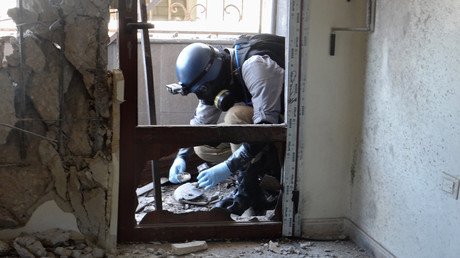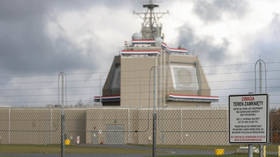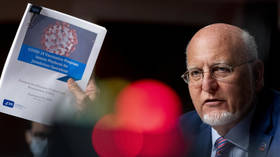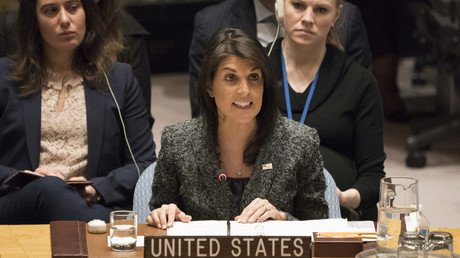UK military action in Syria met with enthusiasm by liberal hawks, but ‘dissenters’ remain skeptical
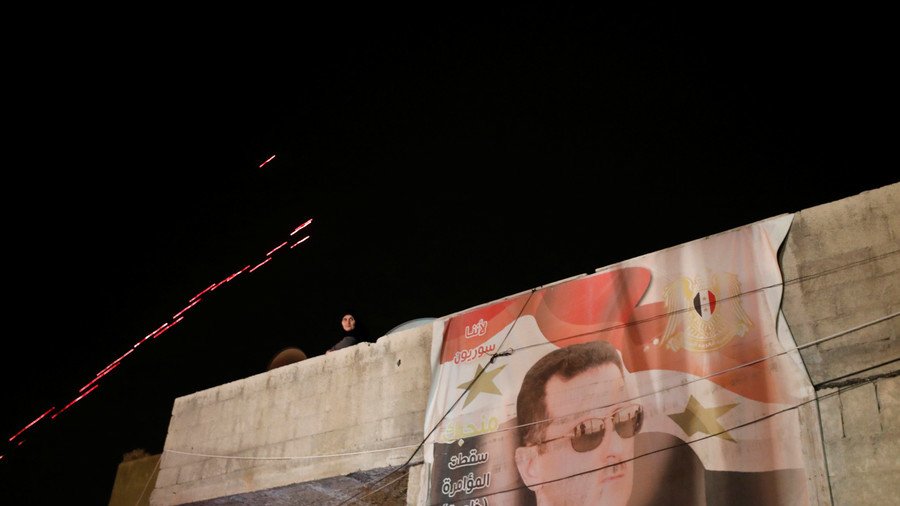
The ratcheting up of warlike rhetoric from the UK government has been increasingly welcomed by interventionists in the media establishment. Though the prospect of military action in Syria looks likely, dissenting voices remain.
Since UK Prime Minister Theresa May refused to rule out military action in Syria as a response to the alleged chemical weapons attack in Douma, a formerly rebel-held suburb of Damascus, there has been a fervent hawkish clamor from the usual suspects across the media establishment.
Guardian journalist Simon Tisdall has written an op-ed piece titled, 'After Douma, the west’s response to Syria’s regime must be military,' in which he calls for military action to proceed before an OPCW investigation into the incident.
According to Tisdall, the culprits behind the supposed chemical attack are obvious: the Syrian government and its ally, Russia. “Calls to wait for yet another UN investigation amount to irresponsible obfuscation. Only the Syrian regime and its Russian backers have the assets and the motivation to launch such merciless attacks on civilian targets.”
In a reaction that wouldn't be out of place in the run-up to the 2003 Iraq War, Tisdall concludes: "Allied military intervention, better late than never, is necessary to avoid future atrocities, [and] spare innocent lives."
In turn, right-wing UK broadsheet the Telegraph pleads for the UK not to be left on the periphery if the US and France decide to take military action in Syria. Its editorial concludes: "If America and France are to act, Mrs May needs to ensure that the UK is not left on the sidelines unwilling to join in the punitive action she has rightly identified as necessary."
Political commentators on Twitter such as Mark Curtis are not so convinced military intervention is the solution to the Syrian conflict: “Maybe Iran should strike Tel Aviv to halt atrocities in Gaza? Moscow to strike Riyadh to stop Saudi atrocities in Yemen? How about Jordan striking Ankara to stop atrocities in Afrin?”
Maybe Iran should strike Tel Aviv to halt atrocities in Gaza? Moscow to strike Riyadh to stop Saudi atrocities in Yemen? How about Jordan striking Ankara to stop atrocities in Afrin?
— Mark Curtis (@markcurtis30) April 10, 2018
The Mail Online’s Peter Hitchens – in a blog article titled ‘The Guns of April : Are we in a pre-War era, right now?’ – suggests that those such as himself who oppose military action are seen as betraying their country in favor of foreign, enemy powers. Hitchens writes: "This is an invariable symptom of a country whose elite is bent on war."
Are we - once again - rushing to judgement over Syria's alleged use of chemical weapons? Please see my analysis of the last such claims: https://t.co/zAqgrG3B0d
— Peter Hitchens (@ClarkeMicah) April 9, 2018
Simon Jenkins, a colleague of Tisdall’s at the Guardian, shares the view that Assad is responsible for chemical weapons violations in his own country. However, he insists bombing Syria is not the solution, saying: "For the moment, western military intervention is utterly pointless. We must kick the habit of trying to rule the world." This, perhaps, is a nod to Britain’s colonial past that some in government want to resurrect to help reassert itself on the global stage.
In Jenkins’ concluding remarks, he highlights the hypocrisy of nations such as the US when it comes to the laws of war: “The laws of war are enveloped in hypocrisy, largely because they are written by the winners. The US has still not signed the convention against delayed-action cluster bombs, one of the most immoral weapons ever devised.”
The drumbeat of war is increasingly being sounded among the political and media hawks. The question is, will this translate into something more tangible? The ‘dissenters’ will be hoping it does not.
Like this story? Share it with a friend!
